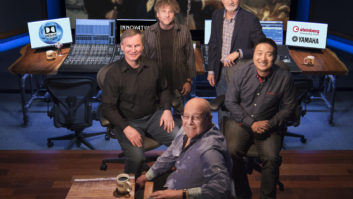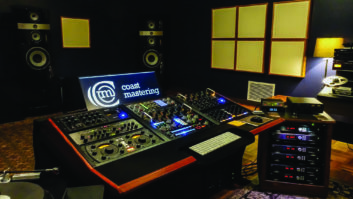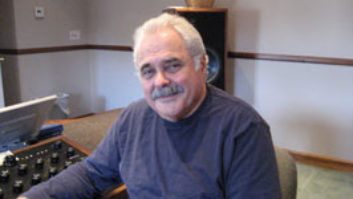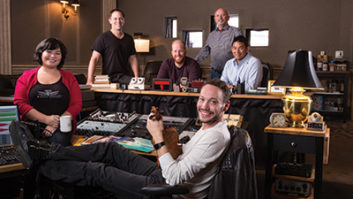The main thing that I notice about the time I’ve been in the mastering business is that the technology has gotten so much more diverse and complex. Early in my career, I worked for A&M Mastering for almost 15 years — I was there when Mix started coming out in 1977 — and in that time, very little changed technologically. About the only things that changed were we went to 30 ips and then to half-inch, and some projects might have Dolby. But there was still really only one format — LPs — and everything was tape-based. Back then, mastering was still sort of considered a “dark art,” because it seemed mysterious and was a very specialized craft done by relatively few people on cumbersome and expensive equipment. Disc-cutting is actually very tricky. If you do it right, it can sound spectacular, but there were a lot of idiosyncrasies you had to learn in order to do it right.
Things started to change in mastering when we started getting into digital, toward the end of the time I was at A&M and after I opened up my own studio in 1984. It figures that as soon as I started my own business, there would be a steady stream of new formats and I’d have to start buying new equipment every six months!
Frankly, I didn’t embrace the early digital that much because there were a lot of problems with it. I was one of those guys who kept complaining that the manufacturers needed to improve digital — that you couldn’t make perfect copies like they claimed. There was obvious degradation, but they denied it. I got a lot of flak from people at A&M for openly criticizing digital: “Bernie, stop — you’re going to hurt the format!” Then, when manufacturers started making equipment that actually did make digital sound better, they had to admit that what they were selling earlier wasn’t perfect, or even that good!
Digital’s come a long way since then, of course, and what really turned it around was better converters, better ways of busing the signal around and improving the integrity of the signal — better wires have even helped. Now, too, we have devices that re-clock the signal, which is valuable. So there’s been a steady improvement all along.
With digital, if you’re really careful and you minimize your processing or the manipulation of the signal as much as possible, you can make a really good-sounding master. There are still people out there who believe that once you’re in the digital domain you can’t hurt the sound, but that’s far from the truth. Any time you use processors or equalizers or whatever, you’re going to degrade the signal a bit, simply by putting this equipment in the circuit. So if you don’t need it, don’t put it in. I tell that to all my clients.
Although musicians seem to know more about engineering and mastering these days than they used to, I find that the quality of the material that’s coming to us is similar to what I’ve always gotten. What has gone downhill is the final product. What’s in the stores is probably as bad as it’s ever been — I’m talking about the sound quality of pop music; not jazz, not classical. And a lot of it is because of this whole level war that everyone is into with pop music: Everything has been slammed, pushed and processed to death, and the primary goal is to just get the thing loud.
These CDs all sound the same to me — they’re all grainy and fuzzy; I call it “gray sound.” I’m hearing a lot of vocals that sound terrible because they’ve been worked to death on a computer. A lot of engineers don’t seem to realize that every plug-in you use degrades the sound.
We’ve spent a lot of time here trying to develop equipment that can give us some of that feeling of dynamics and cleanness, and still have it compete in the marketplace. We’ve done a lot of equipment modifications, built some of our own equipment — which we’ve always been known for — just to keep the integrity of the signal when it’s going through this process of trying to make it competitive level-wise. I still enjoy working on all kinds of music, and I like the challenge of actually making those pop albums sound good — to make sure they have dynamics and still have punch. But I must admit, it’s kind of refreshing when I get to do acoustical albums and jazz. I still prefer music that sounds natural.
Bernie Grundman is a world-renowned mastering engineer with studios in Hollywood and Tokyo. Bernie Grundman Mastering’s new 5.1 suite is set to open this summer.







